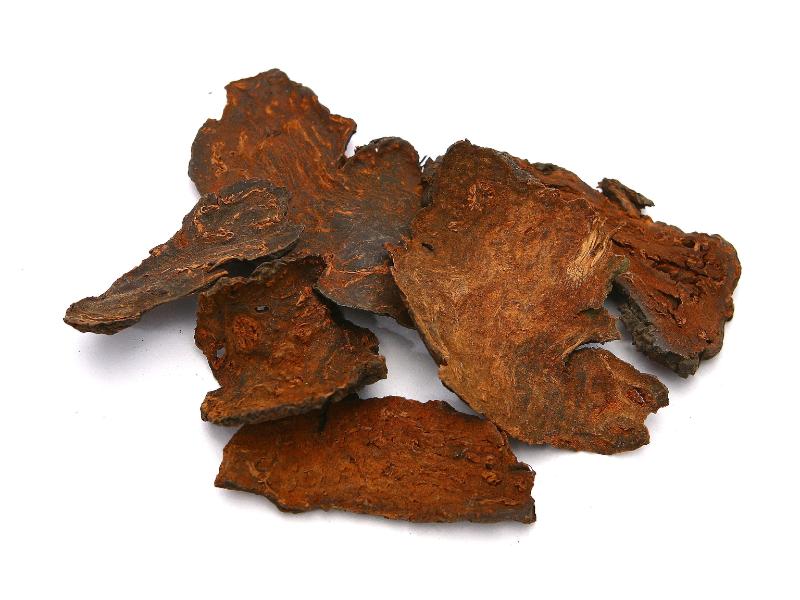Search in medicinals
Polygoni Multiflori Radix
Flowery knotweed [root]
何首乌 〔何首烏〕 hé shǒu wū

Alternate English names: multiflorous polygonum [root]
Alternate Chinese names: 交藤 jiāo téng; 夜合 yè hé; 首乌 shǒu wū
Kingdom: Plant
Origin in PRC Pharmacopoeia: Polygonum multiflorum Thunb. (PRC Pharmacopoeia)
Origin in unofficial sources: Polygonum multiflorum Thunb.
Use: Medicinal
Category: Supplementing agents / Blood-supplementing agents
Properties: Processed: Sweet, astringent; slightly warm. Raw: Sweet, bitter; balanced.
Channel entry: Processed: liver, and kidney channels. raw: heart, liver, and large intestine channels.
Actions and indications:
- Supplements essence-blood (use the processed form): Blood vacuity with dizziness, heart palpitation, insomnia, withered-yellow facial complexion and lack of strength; liver and kidney
essence-blood depletion with tinnitus,premature graying of the hair, dizziness, and limp aching lumbus and knees. - Moistens the intestines and frees the stool (use the raw form): Use raw to treat
intestinal dryness constipation, welling-abscess, flat-abscess, and scrofula. - Resolves toxin: Use raw to treat
welling- and flat-abscesses (yōng jū) andsore s. - Interrupts malaria: Use raw to treat enduring malaria.
- Additional uses: To treat blood dryness engendering wind with itching or papules, raw Hé shǒu wū (何首乌 Polygoni Multiflori Radix, flowery knotweed [root]) can be combined with Jīng jiè (荆芥 Schizonepetae Herba, schizonepeta), Fáng fēng (防风 Saposhnikoviae Radix, saposhnikovia), and Kǔ shēn (苦参 Sophorae Flavescentis Radix, flavescent sophora [root]).
- It may also be used externally for this purpose, by decocting it with ài yè (艾叶 Artemisiae Argyi Folium, mugwort [leaf]) for use as a wash.
Dosage and method: Oral: 9–15g in decoctions; use in pills and powders.
Warnings: Because it frees the stool and moistens the intestines, it is unsuitable for patients with diarrhea or sloppy stool (particularly the raw form). After processing, it becomes more supplementing and also gains an astringent property, so the processed form is unsuitable for severe damp phlegm. Iron vessels should not be used for decoction or processing.
Product description: Flowery knotweed is a fat spindle-shaped root tuber that is dark reddish-brown with irregular wrinkles and the remains of the rhizome at one end. It is hard and difficult to break. It usually comes in the form of ready cut decocting pieces, both crude and processed slices being available. Crude slices are about 2 mm thick, and the cut surface is reddish brown in color. Processed slices are usually a little thicker and are darker in color.
Quality: Solid roots that are black on the outside and reddish on the inside are best.
Production area: Hénán, Húběi, Guìzhōu, Sìchuān, Guǎngxī, Jiāngsū, and Korea.
Etymology: The name hé shǒu wū 何首乌, literally Hé Black Head
(Black-Headed Mr. Hé), reflects the ability to treat premature graying.